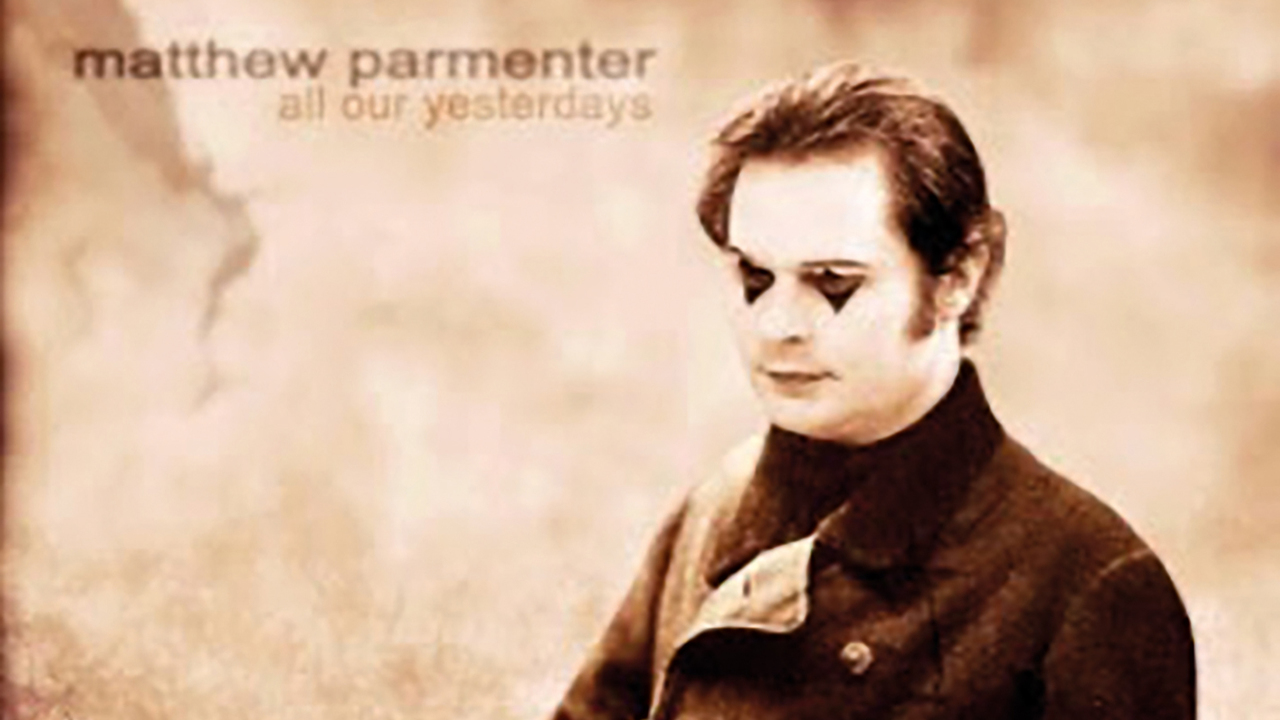With his theatrical face-paint and make-up, Matthew Parmenter recalls the young Peter Gabriel, while his presence-packed voice, baroque chords and sparse arrangements bring to mind Peter Hammill.
Yet for all the acknowledgement of prog heritage, he goes to places on this quietly challenging album which defy genre. His doomy, challenging piano ballads might be emanating from the last lounge singer on a lost sinking ship, a cry from the void. It’s grandiose and strangely affecting.
As frontman with Detroit band Discipline since the late 80s, he’s asserted his credentials, and his previous solo albums have been eerie, almost gothic dreamscapes. All Our Yesterdays is stripped to the bone, with Parmenter’s voice and piano joined on just four tracks by drummer Paul Dzendzel.
The only co-writer is one William Shakespeare, whose words adorn the title track. ‘Out out brief candle,’ wails Parmenter, agreeing with The Bard that life’s ‘A tale told by an idiot/Full of sound and fury, signifying nothing.’ Whether he truly believes that is open to debate, given how earnestly he seeks some kind of meaning among the plangent sighs here. There are mournful echoes within of Scott Walker or David Bowie interpreting Jacques Brel’s My Death.
Gloomy and dark, yet mesmerising in its melancholy visions.
And if all this is making the album sound like a depression-fest – yes, it’s gloomy and dark, but isn’t some of the most beautiful music made with the curtains closed and the sound of the rain creeping in?
On the intriguing opener Scheherezade, the narrator is “a cuckold king” with “a jealous watchful eye”. Its coda, Danse Du Ventre, is emblematic of the record’s tone: sorrowful but seductive. Digital pursues some arch analogies about our ephemeral status, while I Am A Shadow repeats the trick.
The spell is almost broken by Stuff In The Bag, which picks up a clumsy beat and unfortunately sounds like a Gilbert O’Sullivan out-take, but a rueful redemption comes with Inside, arguably the album’s best track. It pitches its blend of loneliness and escapism perfectly. It’s mesmerising in its melancholy visions.
As the finale Hey For The Dance tries to lift the spirits, the Cohen-esque beauty lies in the gap between its hopes and its despair. ‘Call for the dance and call for the cheer/It’s now, and this is who we are.’
All Our Yesterdays is a tough listen, and occasionally flies dangerously close to Barry Manilow does The Cure territory (if there’s such a place). You have to admire its uncompromising, near-heroic commitment, however: it loves the low and embraces the elegiac. A new kind of blues.

